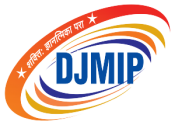
COMPUTER ENGINEERING
- Overview
- Teaching Method
- Performance Evaluation
- Syllabus
- Learning Resources
- Beyond Curriculum
About Computer Department :
Computer Engineering at DJMIP offers three years duration of Diploma in Computer Engineering which is affiliated to All India Technical Education, Delhi and affiliated to Gujarat Technological University, Ahmadabad. The Department has been concentrating on high quality teaching along with laboratory practices so that the students get better knowledge of the curriculum subjects. To meet the required academic standards, quality instruction to students is imparted by the motivated and qualified faculty members providing good academic insights. To provide higher degree of perspective in the concepts of subject content, Computers and Audio-Visual equipment are extensively used. Students are especially trained to meet the current industrial requirements. The involvement and contribution of work force on teaching and learning process of both teaching and non-teaching staff enrich the Computer Department of as a pioneer one.
The department has evolved over time to keep up with the ever-increasing challenges in technology development, while maintaining a strong base in the fundamental aspects of Computer Engineering.
Objectives of the Computer Department :
- To prepare students to handle computer software and hardware oriented projects for the industry.
- To develop excellence in the field of Computer Science and Information Technology as well as Research and Development activity.
- The teaching methodology in the department goes beyond fulfilling the syllabus requirements of the University, to meet the today’s industry needs.
- Faculty motivates and guides the students to do mini projects in core subjects.
- Special focus will be given to develop Communication and Soft Skills. The department is having strong association with industries to uplift the student’s practical knowledge.
Pedagogy
- Visualization
- Cooperative learning
- Inquiry-based instruction
- Differentiation
- Technology in the classroom
- Behavior management
- Professional development.
Students’ Performance Evaluation: (Academic and Extra co-curricular Activities)
- At Department Level
- Class behavior
- Attendance of Class
- Attendance of Laboratories
- Assignment Completion
- Class Test
- Mid Semester Examination
- End Semester Examination
- At Institute Level
- Participation in various extra co curricular Activities
- GTU Ranking
- Participation in various GTU activities
Syllabus
Diploma in Computer Engineering | |
Semester – I | |
Title of the Subject and Code | Web Link |
(4300001) | https://s3-ap-southeast-1.amazonaws.com/gtusitecirculars/Syallbus/4300001.pdf |
Communication Skills in English (4300002) | https://s3-ap-southeast-1.amazonaws.com/gtusitecirculars/Syallbus/4300002.pdf |
(4300003) | https://s3-ap-southeast-1.amazonaws.com/gtusitecirculars/Syallbus/4300003.pdf |
Sports and Yoga (4300015) | https://s3-ap-southeast-1.amazonaws.com/gtusitecirculars/Syallbus/4300015.pdf
|
Fundamentals of Electrical and Electronics (4300018) | https://s3-ap-southeast-1.amazonaws.com/gtusitecirculars/Syallbus/4300018.pdf |
Fundamentals of Computer (4310701) | https://s3-ap-southeast-1.amazonaws.com/gtusitecirculars/Syallbus/4310701.pdf |
Basic Computer Programming (4310702) | https://s3-ap-southeast-1.amazonaws.com/gtusitecirculars/Syallbus/4310702.pdf |
Diploma in Computer Engineering | |
Semester – II | |
Title of the Subject and Code | Web Link |
Physics (4300005) | https://s3-ap-southeast 1.amazonaws.com/gtusitecirculars/Syallbus/4300005.pdf |
Indian Constitution (4300016) | |
Static Web Page Design (4311603) | |
Engineering Mathematics (4320002) | |
Electronic and Computer Workshop Practice (4320701) | |
Advanced Computer Programming (4320702) | |
Digital Electronics (4321103) | |
Learning / knowledge Resources
SR.NO | LEARNING RESOURCES | AVAILABLE RESOURCES |
1 | Library | 01 |
2 | Computer Lab | 01 |
3 | Language lab with PCs | 01/20 |
4 | Other labs for Practical Purposes | Workshop, BME Lab, MS Lab |
7 | Auditorium/ Seminar Room | 01 |
8 | Faculty Rooms | 01 |
9 | Internet Connections | Yes |
10 | Teaching Aids | LCD Projector |
Beyond Curriculum / Enrichment
- All faculty members identify the gaps in the curriculum and include topics to bridge the gaps.
- Guest lectures, Seminars, Workshops, and Training programmes are arranged to create awareness about the current demands of industry.
- Assignments are given on all the subjects, in addition to arranging group discussions, written/oral tests, quizzes, role plays, etc…
- The College lays emphasis on Spoken English to inculcate strong communication skills among students.
- Additional laboratory experiments besides curriculum requirements are provided at various laboratories.
- Regular industrial visits are conducted for students of all disciplines.
- Co-curricular and extra-curricular activities are arranged keeping in view the goal and objectives of the Institution.
- Various value added courses are provided to enhance the employability skill of students.
- The Library is well updated with books, journals, back volumes, E-books and E-journals.
- A library hour within the class time-table is provided to encourage library use by students.
Future Plan :
- At Department Level
- Faculty Development through the Industrial Training and STTPs.
- To develop Laboratories at various semester
- To develop department module based on various software, hardware and technologies knowledge.
- Academic Level
- To organize state/National level events, Paper presentation and Project
- Competition
- To organize Experts Lectures
- To start various skill based activities
- To place students at well reputed organizations
Course Details
Course Duration
Six Semesters ( Three Years )
Intake Seats
Sixty Students Per Batch
Scope
This course provides you with a sound knowledge of computing principles and applications in scientific and engineering domains. It develops in you an ability to analyze complex engineering problems and generate solutions through computing.
